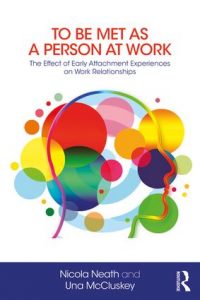Exploratory Goal Corrected Psychotherapy (EGCP) © is the name given to a form of psychotherapy that has been developed by Una McCluskey and is based on the theoretical work of Heard and Lake (1997 and 2009) and her own work on a Theory of Caregiving in Adult Life: developing and measuring the concept of Goal Corrected Empathic Attunement (GCEA), (2001 and 2005).
The Practice is based on an understanding of instinctive human behaviour as essentially motivated to reach distinct and diverse goals, for example, asking for care from another person; giving care to another person; developing and sharing interests with a peer; having a life-long affectionate and sexual relationship; constructing a supportive lifestyle and home environment. If a person becomes instinctively motivated to reach the goal of any of these systems, and is unable to do so for whatever reason, they will experience distress and their sense of wellbeing compromised. This can lead to the person developing defensive strategies to cope with the distress which may have a knock on effect on their sense of self.
The Practice is called Exploratory Goal Corrected Psychotherapy (EGCP) © because the focus is twofold, firstly the members are invited to explore the experience of different instinctive systems within themselves and whether these systems are goal-corrected or not and secondly, the facilitator tries to provide effective caregiving to the members which, if successful (i.e., reaches the goal of caregiving), should enable to membership to remain exploratory.
So the form in which the method of psychotherapy is delivered is in itself monitored as to whether it is goal-corrected or not (i.e., fails to deliver effective caregiving).


